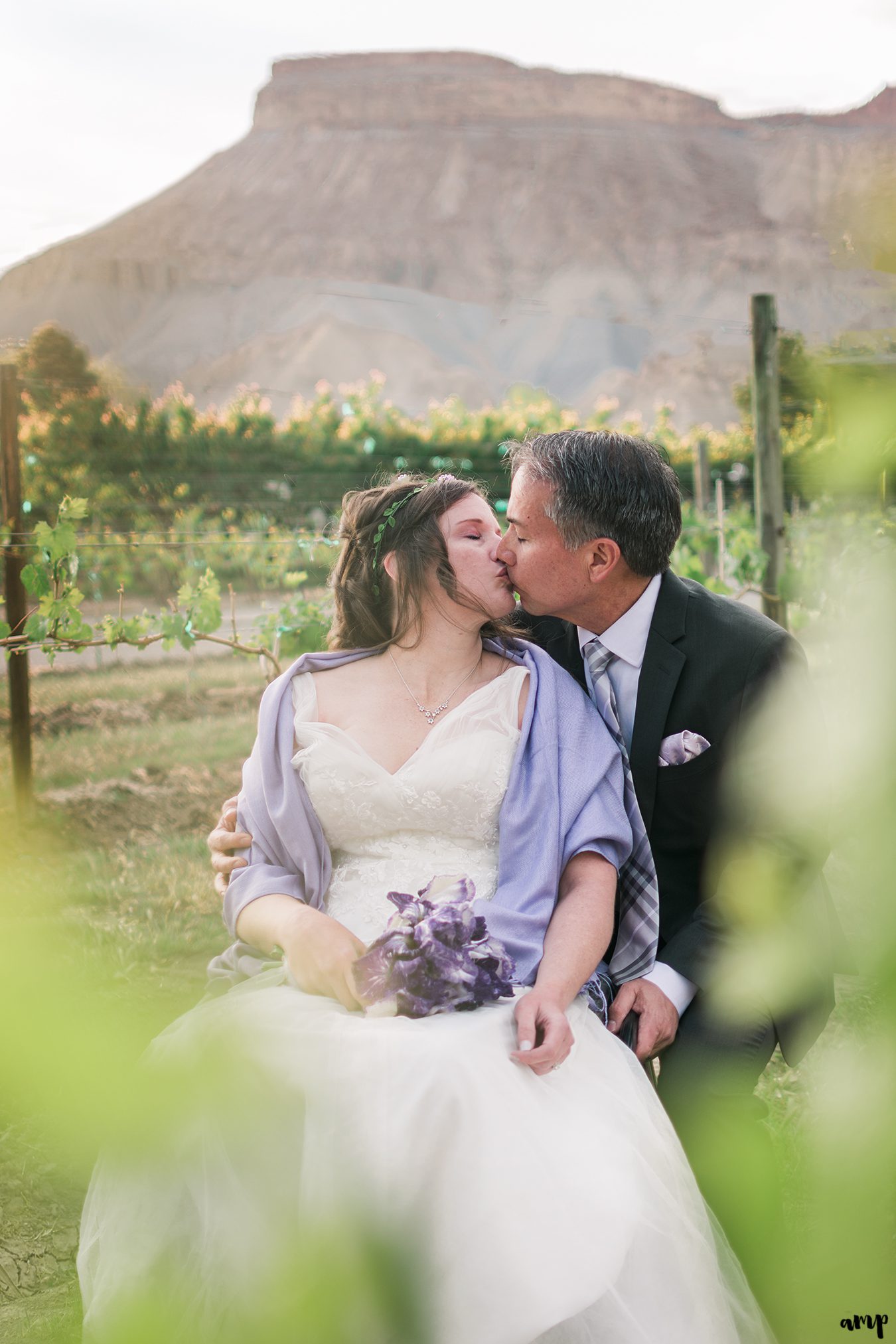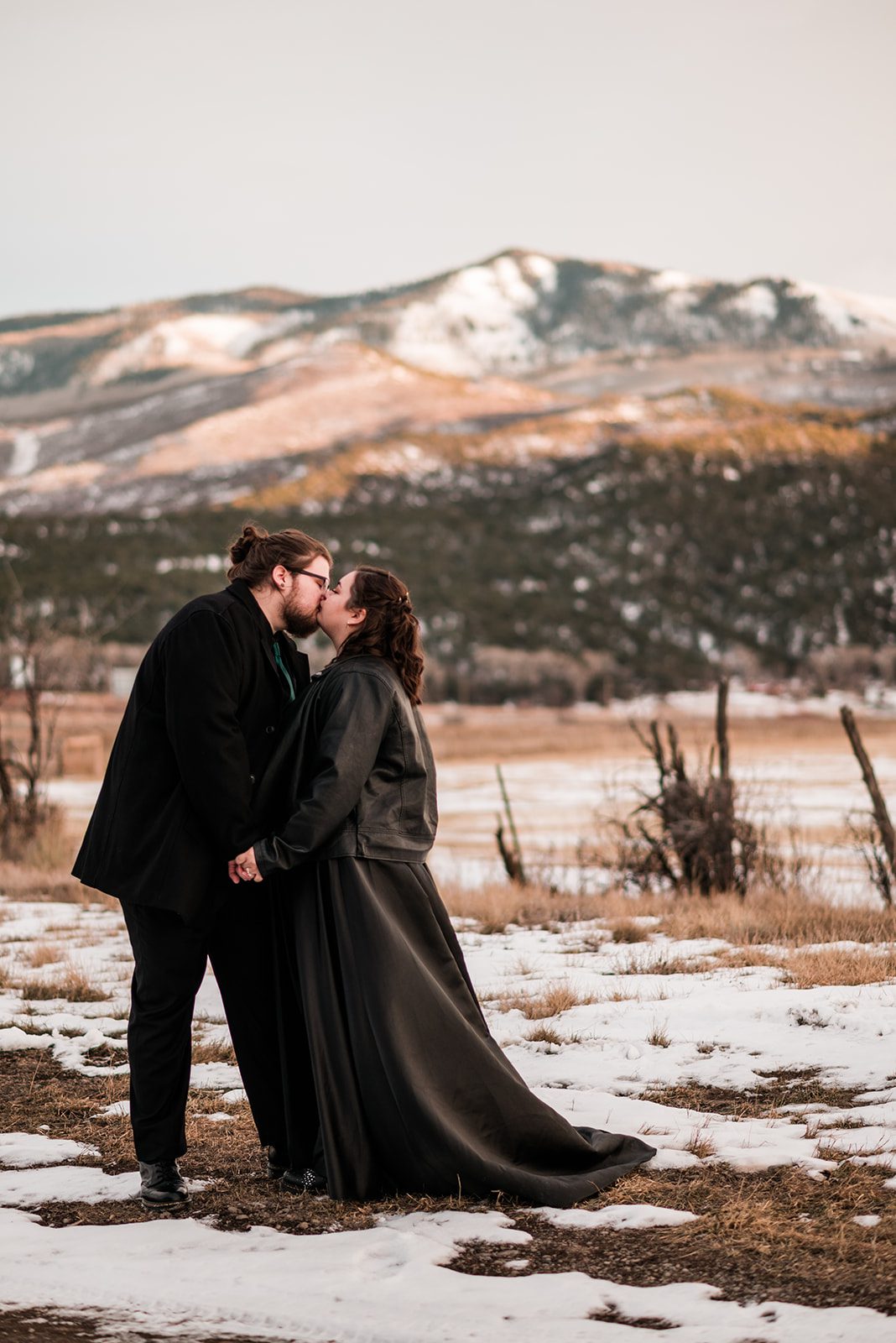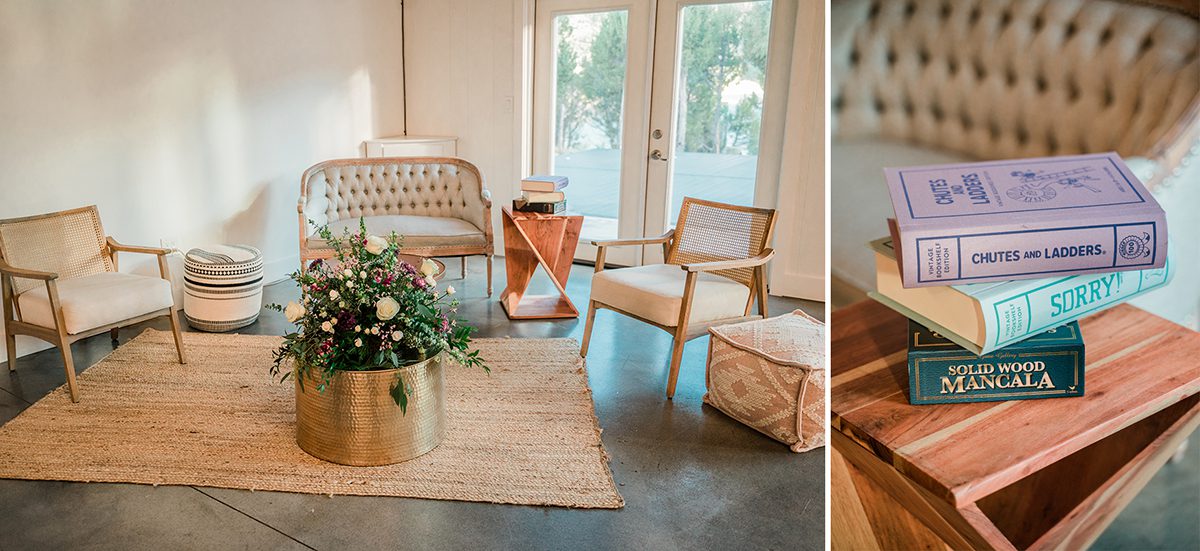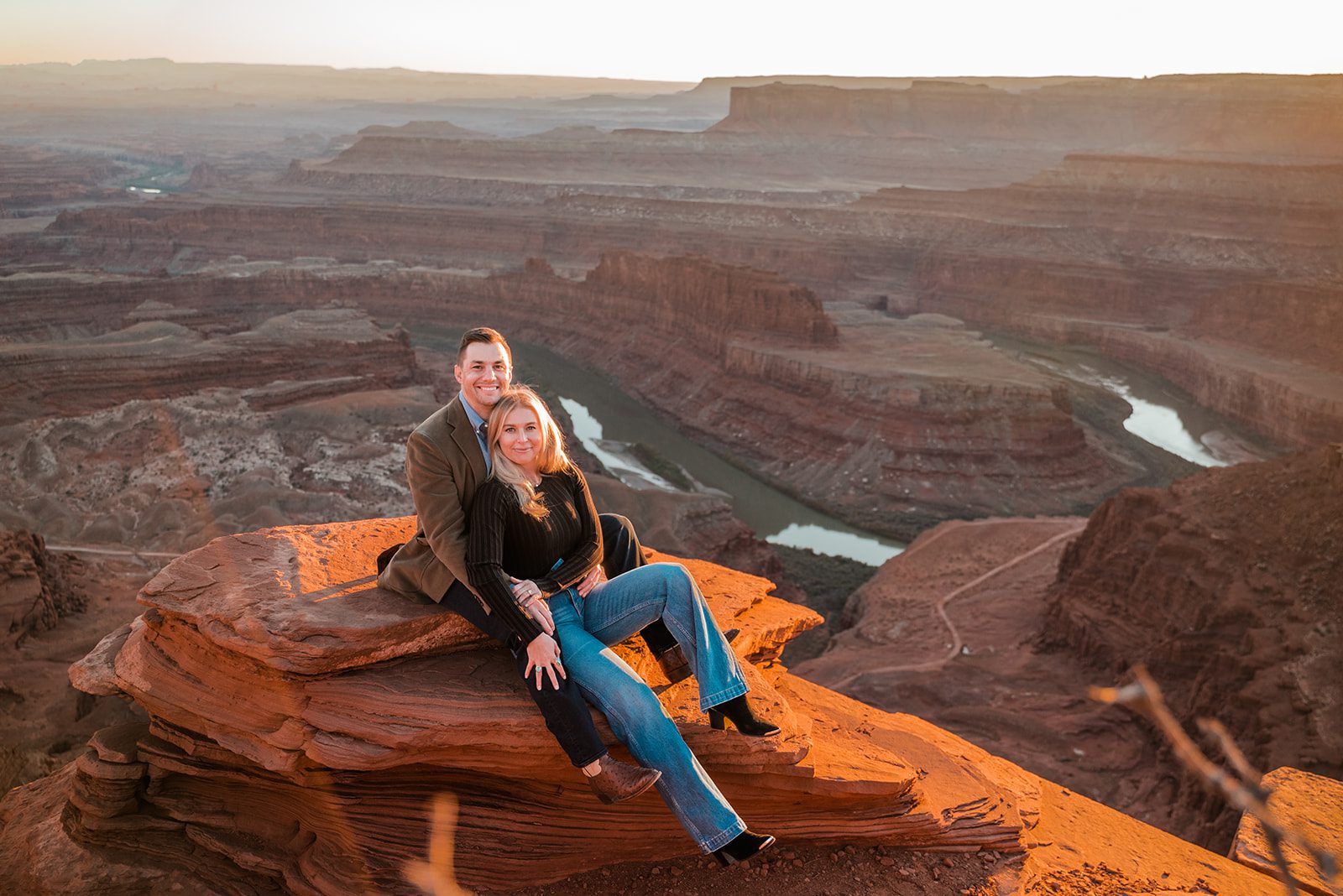Planning elopement weddings with disability in mind is becoming a real highlight of what I do to help couples craft their perfect wedding day! As someone who is also chronically ill and disabled, it is so rewarding to offer that understanding for couples who need it. People with disabilities seem to be drawn to elopements and micro weddings as a wonderful option for celebrating their love and commitment — and for good reason! Eloping with disability allows you time, space, savings, and more to feel comfortable and safe on your wedding day. Let’s get into it:

Why Disabled People Choose to Elope
Everyone has their own reasons for choosing to elope for their wedding day, and couples facing disability are no different. From anxieties, to chronic pain, to mobility access needs, and more, the ultimate word I find my couples sharing most when it comes to why they chose to elope is “freedom.”
The freedom to take a break in the middle of the afternoon.
The freedom to throw away expectations and traditions that don’t serve you.
The freedom to marry your loved one without the crowds, or the pressure and attention of hundreds of other people.
The freedom to wear whatever you want.
The freedom to share a commitment ceremony without having to get the government involved.
The freedom to spend less money on your wedding day.

Marriage with Disability
Did you know 1 in 4 Americans have a disability?
While not every couple with one or more disability finds themselves unable to legally marry without facing such dire consequences, the fact remains that some people do. Commitment ceremonies are an exchange of vows (usually) similar to a wedding ceremony (sometimes identical to one!) but that is not legally binding. The marrying people doesn’t sign any paperwork or get the government involved, for whatever reason. This is a fantastic option for folks who want to commit to each other, share that love and commitment with each other and/or witnesses, but are currently not interested in having those legal implications.
How to Elope with Disability
Choosing Wedding Attire for Disabled People
One benefit of eloping with disability is the freedom to dress how you want – if you have chronic pain or a disability that affects what you can wear, wear whatever you want or are comfortable in! This fantastic article talks all about dress shopping with a disability, so check that out for tips on selecting attire from a fellow spoonie.
Select an Accessible Venue or Location
Selecting accessible venues or locations is the part of eloping that has some disabled people thinking this industry isn’t for them. It can be hard to imagine yourself eloping in the mountains or the Moab desert when so much of the imagery out there is couples hiking, thin and fit people in nature, etc. I get it! But I promise you, eloping is totally possible even if you or your guests need accessible locations.
Part of this comes to selecting great elopement professionals who are familiar with helping couples who need accessibility considerations. Whether you need access for a wheelchair, you need sun protection, you’ll be taking it slow, you aren’t up for a long hike, you need to stay cool, or whatever your accommodation needs may be, having a photographer or planner (whoever is helping you with selecting locations) who you feel comfortable with and confident in is essential. They should be able to help you find locations that fit your needs – whatever they are!

Elopement Timelines With Disability
Another amazing freedom that comes with eloping is the freedom to take breaks whenever you want. Need a quick minute during the ceremony to just hug out your anxiety? Do it! Want to warm up from the cold in the coffeeshop down the road? Heck yes! Need to plan a cooler-weather event with low activity for your POTS? There’s definitely options for that. Want to plan an afternoon nap? Totally an option! Be sure to plan plenty of down time to check out, relax, recover, and actually enjoy your wedding day.
Some elopement timeline examples with disability in mind I’ve seen personally include:
- Splitting time between sunrise and sunset to recover mid-day and avoid the heat, and getting multiple backdrops without a long time commitment.
- Taking time after the ceremony to relax, sit, and enjoy some conversation, snacks, or views.
- Planning a ceremony and photos at wheelchair accessible overlooks.
- Working through group photos slowly to take breaks when needed.
- Picking a picturesque vacation rental or small venue to keep things centralized and easy.
- Opting for a short and sweet celebration for just the essentials and low anxiety.
- Picking a super remote location to feel like the only people around for quiet and lower stress.
- Planning a game night with friends rather than a night of dancing.
I’m sure this is just touching the surface of the topic of eloping with a disability, so please share your ideas and comments in the comment section below! I’ll be updating this article over time as I learn and think of more to add to it as well. This is a collaboration!
Discover more from Amanda Matilda Photography
Subscribe to get the latest posts sent to your email.
